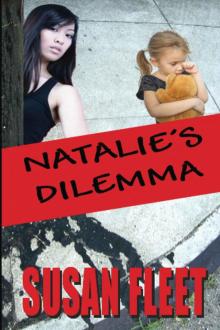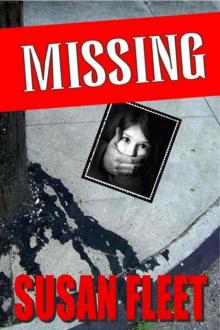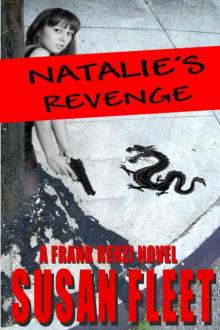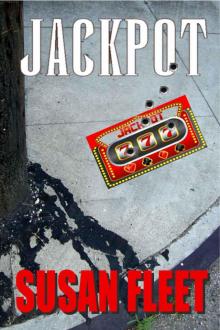- Home
- Susan Fleet
Jackpot (Frank Renzi mystery series) Page 3
Jackpot (Frank Renzi mystery series) Read online
Page 3
The plaque cited Detective Franklin Sullivan Renzi for his work with underprivileged children. When he wasn’t busy hunting killers, he coached a middle-school basketball team in Mattapan.
Now, two thick murder books sat on his desk.
A third case file lay open in front of him. Five minutes ago he’d called the victim’s son. He stifled a yawn. It had been a long day but he didn’t feel like going home, didn’t want to deal with more problems there.
A muscle worked in his jaw as the son’s voice, full of anguish and rage, said, “They keep asking for Grammy. Why can’t you catch the bastard?”
“George, I’m very sorry about your mother—” And listened to another litany of sorrows.
He studied a snapshot on his desk, a photo of him with his arms around two boys, his rangy six-foot-one frame dwarfing them. The twins played on the basketball team he coached. Their proud mom had taken the picture and sent him a copy. Dad was AWOL, like a lot of black fathers these days. Too bad he wasn’t coaching them now. That was a lot easier than listening to the grief-stricken son of a dead lottery winner.
“Her necklace is missing.”
Instantly alert, Frank picked up his pen and jotted a note. Last year his boss had sent him to the FBI Academy to take a course on serial killers. The behavioral analysis instructor said serial killers often took trophies, a souvenir they used to relive their crimes later. The most depraved killers took body parts. Some took underwear, panties or bras. Others took jewelry.
“You’re sure?”
“Of course I’m sure. It was a birthday gift. She wore it when we went out for dinner. I took her picture.”
“A picture? Great! Can you send it to me?”
George agreed to Fed-Ex the photo, and Frank promised to call if he had any news.
Sickened by the brutal murders, he rubbed his eyes. Ross Dunn, the FBI agent he’d met at Quantico, had asked him to act as liaison on the case. Three murders in Vermont, Connecticut and, most recently, a town west of Boston. Three Caucasian females, the youngest fifty-nine, the oldest sixty-seven. Two were widows, one had never married, all lived alone.
The telling detail: before the murders all three had collected lottery prizes ranging from one million to six million dollars. In each case, cash and credit cards were readily accessible but not stolen. George’s mother was the first. A sixty-three-year-old widow, Lillian Bernard had lived in Vermont. George, her only son, lived in California.
He opened his desk drawer and took out a pack of Merit Lights. Five months ago he'd pretty much quit smoking, but George had gotten to him, his voice shaking with grief and outrage. Frank didn’t blame him. His own mother had died three months ago, and he was dealing with his own grief.
George’s kids missed their grandmother. His daughter Maureen was in college, but she missed her grandmother, too. He clenched his jaw, recalling the final days when he visited his mother, a shadow of her vibrant self, wasted by the cancer that ravaged her. He missed her, missed confiding in her, telling her things he would never reveal to his father. Or his wife.
He left his office and rode the elevator downstairs. The District 4 lobby was noisy: police-radio chatter and the belligerent voice of a man mouthing off at the officer who’d collared him. Later it would be worse. District 4 covered the South End, Back Bay and the Fenway, a wide area with a dozen colleges and 27,000 residents. And after dark the thugs came out to play.
He went outside and lit up, his first cigarette in two weeks. The first drag gave him a head rush. Clouds hung low in the dusky sky. He hunched his shoulders against the chilly wind, listened to horns honking, drivers jockeying for position in rush-hour traffic. In the distance, a siren squawked, the distinctive whoop of an ambulance headed for Boston City Hospital a few blocks away.
He should call Evelyn and tell her he’d be late, but he didn’t feel like it. He didn’t want to go home. His marriage had been on life-support for years, held together by his daughter. Now it was dead, a dry husk with the juice sucked out of it. A pang of regret hit him. Eighteen years ago he couldn’t wait to go home and play with his daughter.
Now when he pulled into his driveway, he felt only dread, the essential question being: How would he get through another night with Evelyn?
When he really wanted to be with Gina.
Was she home, he wondered, or still at work? He decided to call her, but when he took out his cell, it began to ring. He punched on. “Renzi.”
“Frank, you home?” The distinctive bass voice of Lieutenant Harrison Flynn, his supervisor.
“No, outside the D-4, getting some fresh air.” I’m in no hurry to go home these days.
“I just got a call from the State Police. We got another dead lottery winner down on Cape Cod.”
“Damn! I just got off the phone with the first victim’s son. Where was this one?”
“Chatham. Postman rang her bell around noon, got no response and called police.”
“Thanks for the heads-up, Hank. I’m on it.”
He flipped the cigarette in the gutter, returned to his office and studied the photographs on his desk. George’s mother sprawled on the floor, her head encased in a yellow plastic bag. The close-up of her face after they removed the bag was heartbreaking: a look of horror, eyes shut tight, her mouth open in a silent scream. He was glad George hadn’t seen it.
First Lillian, then another, and another. Now there were four.
He was no gambler, but he’d bet money the Jackpot Killer was already trolling for his next victim.
A palpable feeling of outrage jumped his heart rate.
“You sick bastard,” he muttered. “I’m going to get you.”
CHAPTER 4
Thursday, April 26 — Chatham
“Whoever did that was sick,” Sergeant Cooper said. “Florence was a wonderful person, a great lady.”
An older man with gray hair and a weathered face, the Chatham police chief was outraged. Frank didn’t blame him. Earlier, a State Police detective had showed him the crime scene photos: Florence lying on the floor, her head encased in a yellow plastic bag. He couldn’t begin to imagine her panic, her desperate struggle to breathe. A close-up showed a nip bottle of J&B in the hollow her mouth had made in the bag.
The Jackpot Killer’s signature, letting them know he’d killed again.
But this time there was blood. Frank tried to picture it: Florence fighting for her life, the killer slamming her head with something, crushing her skull.
A sickening image. An evil deed by an evil man.
The FBI instructor had warned them not to get emotionally involved. Easier said than done.
“She didn’t deserve to be murdered, that’s for sure. Does she have relatives around here?”
“Her husband died a few years ago. She’s got a son, but I gather he’s been a problem.”
“What kind of problem?”
“Gary joined the Army, got sent overseas during the Gulf War back in 1990. From what I understand, his vehicle hit an IED. Two of his buddies died and Gary lost both legs. Sad. Twenty-eight-year old guy comes home with no legs. Then his wife left him, turned him bitter, I guess. He lived with his parents for a while. Florence and Chuck built a wheelchair ramp so he could get in and out of the house. But Gary started drinking and got into drugs. Chuck got tired of it and threw him out.”
“Where’s Gary now?”
“In a rehab facility up in Plymouth. Florence used to visit him every week. I had to do the notification. Gary started swearing and cursing. I guess he’ll inherit the money. Hard to say if that’ll help or hurt.”
“Straighten up and fly right, or use it to buy drugs?”
“Wouldn’t want to bet, either way,” Cooper said.
“The front door was unlocked?”
“Yep. The postman said he had a package for her, rang the bell and got no answer. He saw Florence’s car in the driveway and got worried, thought maybe she had a heart attack, so he tried the door and it was unlocked. He went
in and saw her. What with the blood and all, he figured she was dead. So he backed out the door and called the station from his mail van.”
“Does Gary have a key?”
“I don’t know. I found the house keys in Florence’s purse, used them to lock up. The thing is, a lot of older folks around town go south for the winter. I think Florence was the only one on her street that didn’t. The woman that lives in the house across the street goes to Florida every year.”
Located on the lower elbow of Cape Cod, Chatham currently had 6,625 residents, more in the summer probably, but winters were bleak on the Cape, no surfing, no swimming, no outdoor concerts, just ice and snow and freezing weather. On his way to the station, Frank had seen a few maple trees with tiny green buds. They seemed out of place, with patches of dirty snow below them, leftovers of the winter storms.
“It’s a damn shame,” Cooper said. “Florence was a sweet lady. I’d see her at the grocery store most every week and chat with her.”
“Is that where she bought the lottery ticket?”
“No, at a gas station in the center of town. The Cape Cod Times did a feature article when she collected the prize. You think the guy did this before?”
“Could be.” He didn’t want to start any rumors. “I need to talk to Gary.” Florence’s son, a man with his own problems. A man who stood to inherit millions if he was the beneficiary of Florence’s will.
Cooper grimaced. “I don’t envy you. He’s already bitter. This might put him over the edge.”
____
The dark-haired young woman behind the reception desk at the Plymouth Rehabilitation Center greeted him with a smile. “How can I help you today?”
“I’d like to talk to Gary Mason.”
Her smile faded, replaced by a frown. “This might not be a good time.”
“Detective Frank Renzi, Boston PD.” He flashed his photo-ID. “I need to talk to him.”
“Oh. Well, in that case, he’s in Room 28.” She pointed to a hallway. “Down there.”
He wove his way through a maze of corridors. The facility was bright and airy, sunlight streaming through skylights in the ceiling, the white walls lined with cheery posters that exhorted “You can do it!”
He stopped at Room 28 and tapped on the door.
An angry voice filtered through the door. “What? I’m busy!”
“Frank Renzi, Boston Police Department. I’d like to talk to you.”
Silence. After a long minute, the door opened. Seated in a wheelchair, Gary Mason glowered at him. “Boston PD, huh. Why should I talk to you?”
“I’m investigating your mother’s murder.”
Mason gazed at him, expressionless, finally said, “Okay. Come on in.”
Frank stepped into a room clearly designed to accommodate someone in a wheelchair. A tiled floor, a large bed, a low chest of drawers and a small desk. A wide door led to a bathroom. Three photos stood on the bureau, a mini-family history: gap-toothed Gary in a Little League uniform; Gary in a cap and gown at his high school graduation; Gary in his Army uniform, before he went off to war. And came home with no legs.
Gary Mason rolled his wheelchair to the desk. Beyond it, doublewide windows overlooked green shrubbery and a well-kept lawn. A telephone, a notepad and pen, and a glass of water sat on the desk.
“I was on the phone with the funeral director,” Gary said. “Making the arrangements.” His agate blue eyes were full of fury. A dark beard covered much of his face, and his long dark-brown hair was pulled into a ponytail similar to those worn by Vietnam War vets. A sleeveless T-shirt revealed muscular arms. Cut-off jeans exposed what remained of his legs, which had been amputated above the knee.
“I’m sorry for your loss,” Frank said.
“Yeah?” A curt laugh. “Which one. My legs? Or my mother.”
“Both. But I’m here about your mother. I want to catch her killer, and I’m hoping you can help me.”
The agate-blue eyes flickered momentarily, then resumed their flat level gaze. “I’d like to catch the fucker, too. How come you’re on the case? Too hot for the Chatham cops to handle?”
Gary clearly had no use for cops. “You mind if I sit down?”
“Sure. Pull up a chair. I’d offer you a beer, but the assholes that run this place won’t let me have any.”
“Right about now, I could use a beer.” He dragged a blond-wood chair with a padded seat over to the desk and gestured at Gary’s legs. “How’d it happen? War injury?”
Clearly not expecting the question, Gary studied him for several seconds. “Yeah. A fucking war injury in a war nobody gives a shit about.”
“Which war was that?”
“The Gulf War. Fucking IED blew up my Jeep, killed two of my buddies.”
“And changed your life forever.”
“You got that right. They ship me home, slap me into rehab. Like they’re gonna fix me up and life’s gonna be great.” His thin lips curled inside the dark beard. “They got these cheerleader slogans, you know? But at the end of the day they go home and live normal lives. What the fuck do they know?”
“What about a wheelchair van with adaptive controls? I’ve seen that work out for a few guys.”
Gary laughed, a short biting sound. “Adaptive controls? You know what I get for rehab? Adaptive gardening. Adaptive golf. Like I give a flying fuck about shit like that. How about adaptive sex? Teach me how to get in bed with some chick and bang her.” Challenging him with his eyes.
Frank let it go, waited a beat and said, “Your mother won the lottery a couple of weeks ago.”
The angry glower disappeared, replaced by a pensive look. “Yeah,” Gary said softly. “I told her to be careful. I told her there’d be people that would try to take advantage of her.”
“Your mother might not be the first person he killed. Your mother’s the fourth lottery winner in New England that got murdered.”
“Fuck! Are you serious?”
“Yes. Last year Boston PD sent me to Quantico to take an FBI course on serial killers. That’s why I’m on the case.” In addition to all the other murders he had to solve, but Gary didn’t care about that.
“I told her to put in a security system. The ADT guy was there last week, but my mother said he couldn’t install the system until the end of this week. Friday, she said. Jesus. If she’d had a panic button she might still be alive.”
But Frank knew a panic button wouldn’t have saved her. “There was no sign of a break-in, so we think she let the killer in. Any idea why she’d do that? Or who it might have been?”
Lost in thought, Gary stroked his mustache.
Frank studied his bulging biceps, tried to picture him as the killer, wheel up the ramp, open the door and say, “Hi, Mom, I’m home.” But he didn’t drive. How would he get there? One of his drug supplier buddies?
A loud thump startled them. Gary half-turned in his chair to look at the window behind him and said, “A bird. Happens all the time. They keep the glass so clean the birds can’t see it.” He heaved a sigh. “Look, I’ll be straight with you. Mom and I had a few problems, so she didn’t confide in me much. I got no clue who she might let in. My father died three years ago. Maybe she was lonely. Maybe she met somebody at those stupid Bingo games she goes to twice a week. Hell, it could have been anybody.”
“No, not just anybody. Why would she open the door to a stranger?”
“Beats me.” Gary’s shoulders slumped, a dejected posture of defeat. “She was all excited when she won, drove up here and told me before she even claimed the prize. She was gonna buy me a motorized wheelchair and a handicapped van so I could drive.” His mouth twisted and he turned away.
Frank waited for him to compose himself.
Moment's later Gary looked at him, his eyes hard. “The funeral’s Saturday morning, that’s all I can tell you.”
He held out his card. “I’m very sorry about your mother, Gary. If you think of anything, even if it’s not important, call me anytime, day or nigh
t.”
He left the facility, picturing the heartbreaking close-up of Florence’s face, her horrified expression. Most days he loved his job, but some days it got to him. Yesterday, a young black man dead in a gutter and a scared little kid who might know who shot him. Today, a murdered sixty-two-year-old woman and her embittered son in a wheelchair with no legs.
Sometimes he wished he’d followed his youthful passion to become a jazz trumpet player. He’d make a lot less money, but at least he’d be able to sleep at night.
____
7:10 p.m. — Braintree
“Another day, another murder,” Frank said, raising his wineglass in a mock-toast.
Perched on the barstool beside him, Gina grinned and clinked her glass against his. “Hey, that’s what keeps us in business, right? You solve ’em, I write about ’em.”
“I could do with a few less.” All he wanted right now was to chill out with a glass of wine, engage in some verbal foreplay with Gina and take her to bed. His lover of nine years, a five-foot-four dynamo, smart as a whip, a great sense of humor and enthusiasm to the max, in bed and out.
South Shore Seafood was slammed, but they’d managed to find two seats at the bar. It wasn’t their usual haunt, but by the time he wrote up his notes on the Chatham murder it was late so they decided to meet here. Close to the highway in Braintree, the popular seafood restaurant was ten miles from Frank’s house in Milton, fifteen miles from Gina’s house in Westwood.
Best of all, once rush hour was over, it was only a short ride to Gina’s beach house, the place they used for their trysts.
“What’s the scoop on the gang hit?” Gina said. “I caught it on the scanner driving in to work yesterday.”
“Same old story. Dorchester ’banger goes outside his territory and gets popped. Man, I’ve got too many cases already and that serial killer I told you about did another one in Chatham.”
“Wow. Another lottery winner?”
“Yeah. Older woman, sixty-two, lived alone, same MO. I spent the morning in Chatham. Then I went to Plymouth and talked to her son. He’s in a rehab facility.”

 Natalie's Dilemma: a Frank Renzi crime thriller (Frank Renzi novels Book 7)
Natalie's Dilemma: a Frank Renzi crime thriller (Frank Renzi novels Book 7) Missing, Frank Renzi Book 6
Missing, Frank Renzi Book 6 Natalie's Revenge
Natalie's Revenge DIVA
DIVA Jackpot (Frank Renzi mystery series)
Jackpot (Frank Renzi mystery series) Natalie's Art: a Frank Renzi novel
Natalie's Art: a Frank Renzi novel